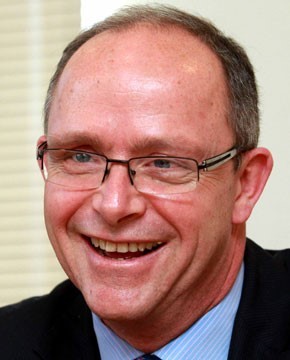On Day 1 of the Paris Climate Conference, President Obama joined with the leaders of 18 other countries and Bill Gates to launch a historic expansion in clean energy research and development funding. The leaders pledged to double their spending. Gates, along with a group of 28 high-profile investors announced their plan to provide support for risky, early-stage clean technology projects. Known as the Breakthrough Energy Coalition, their mission is "to reinvigorate and accelerate global clean energy innovation with the objective to make clean energy widely affordable" in both the developed and developing world.
To find out more about clean energy innovation, I interviewed Nick Parker, the creator of the concept "Clean Tech":
Question 1: Nick, how did you come up with the concept "clean tech" and how is it connected with the idea of clean energy?
Answer: After investing in a company that became the second ever solar IPO on NASDAQ in 2001 I had credibility with "Silicon Valley," enabling me to introduce a new concept that went beyond the old ideas relating to "environmental technologies", a new concept related to economic productivity and clean-by-design rather than clean-up. This resonated with the disruptive, scaling attitude of venture capitalists and entrepreneurs. Clean energy, in all its manifestations, is at the heart of cleantech although it addresses everything we produce and consume, including water and materials.
Question2: What challenges has "clean tech" had since you've come up with the idea?
Answer: Over $85 billion has been provided to cleantech startups and growth companies by investors over the past decade, over $50b in the last five years alone. The challenges are on the demand-side, i.e. customer adoption. Cleantech companies are generally selling into conservative, b2b markets which have high barriers to entry and which are slow to adopt innovation.
Question 3: What's your take on this new announcement from governments and private sector? Is doubling investment in clean energy going to be enough to create tipping points?
Answer: It's a good announcement but I'd rather see demand stimulus, e.g. procurement policies and tax reform. The challenge is to "make markets work" which means shaping demand. Supply of solutions and capital will follow.
Question 4: How do you think industry is going to react to these announcements? What do you think will be the biggest challenges?
Answer: Industry is a bit cynical about climate change in that it's been hard to walk the policy talk. Business, by and large, will respond to clear market signals, whether from consumers, government, the supply chain or finance. The net affect is likely to be a gradual transformation of products and systems. I'm not sure why the billionaires should be applauded for investing where it makes rational sense. Perhaps as important to look at the carbon toll on how they created their wealth in the first place.
Question 5: It seems as if there are two different narratives at the climate talks. One is that green technology can put us on track to a greener future. The other is that we will have to drastically cut ou consumption - fly less, drive less, eat less meat - if we are to avert catastrophic climate change. What's your take on this?
Answer: Technology, at least, will buy us time, but it needs to be more than incremental improvement to matter. Technology, as part of business model innovation, can have bigger impact which is why I've invested in companies like M-KOPA which combines mobile payments systems with cheaper solar for the energy poor on a purely commercial basis.
Our future needs to be less physically wasteful but it can still be better than what we have now. For example, how much education and health care could we buy if we weren't spending trillions on protecting oil supplies in the Middle East? The new sharing models, think Airbnb and Uber, show that we can have a high quality of life without consuming as much resources. We can and will do much better!
After more than a decade creating a cleantech innovation ecosystem in North America and Europe, the challenge is now to accelerate the globalization of cleantech into emerging markets. I'm focused on this, particularly with respect to China, through a financial services company created with the son of Maurice Strong, the father of sustainable development. We're focused on China because it's the mother of all cleantech markets and because what happens there will determine the fate of our planet.

Nick Parker introduced the "cleantech" concept to the finance and business community in 2002 by launching Cleantech Group ("CTG"). Now based in San Francisco, New York and London. CTG has helped mobilize over $6B in private equity, convened over 10,000 decision-makers and analyzed over 16,000 innovators while serving major clients in Asia, Europe, the Middle East and North America.
Tim Ward is the author of The Master Communicator's Handbook, a guidebook for thought leaders and change maker. See: "Communication: It's not about output, it's about impact!"
